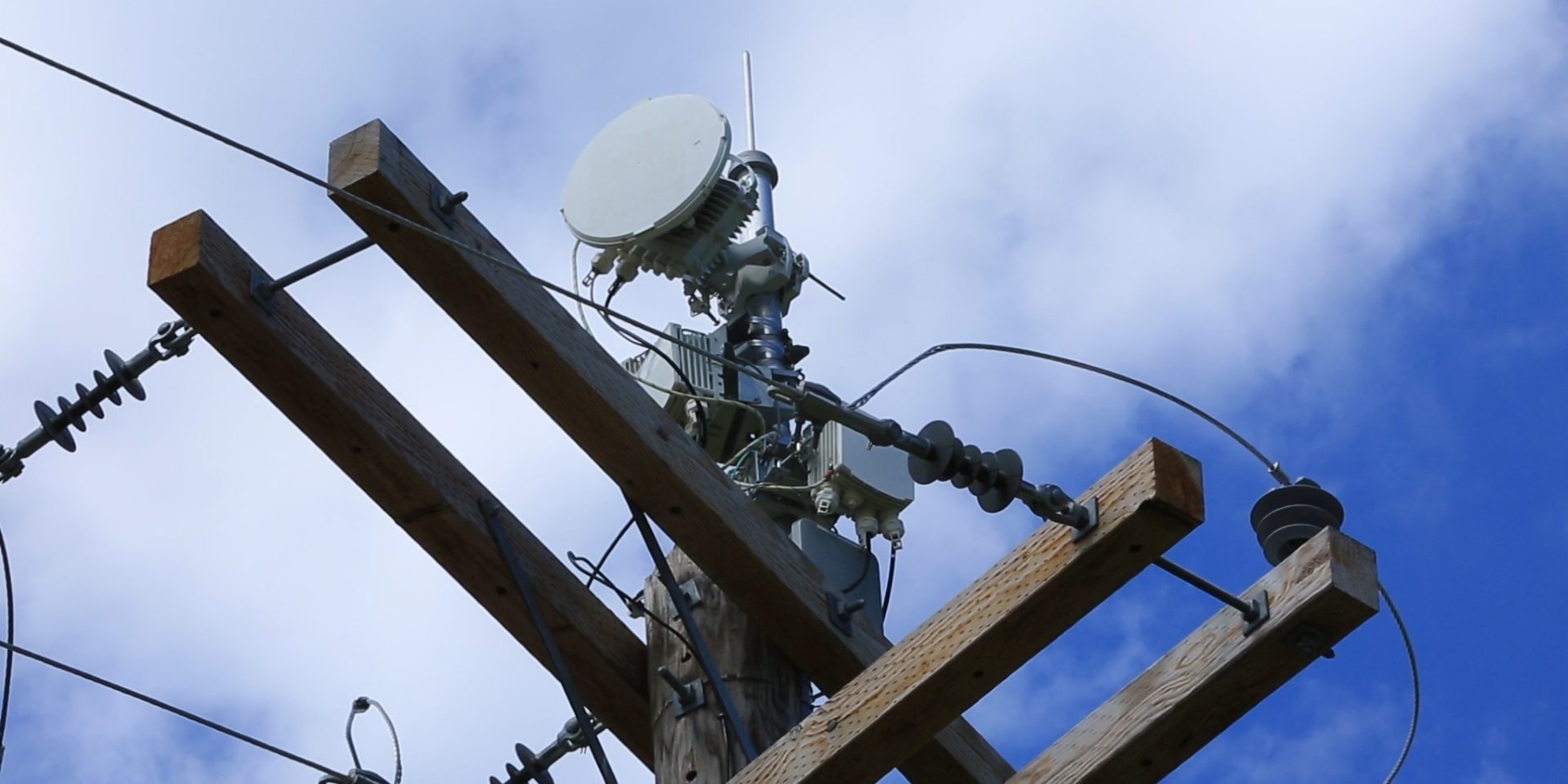Georgia Tackles Broadband Expansion And Local Control

AT&T is testing a new high-speed internet device in an undisclosed location in rural Georgia. It would be one pilot that could benefit from the study committee now looking at expanding internet access quickly with easier access to the right of way in cities and counties.
Courtesy of AT&T
Rural Georgia needs better internet access quickly, but state lawmakers said internet companies won’t expand to rural areas if there’s too much red tape.
Lobbyists said their companies are spending too much time negotiating with each city and county for access to roads to install broadband equipment.
So state lawmakers and local elected officials will meet at 1 p.m. Thursday for the first time to talk about who has the right of way.
The city of Dublin, about an hour’s drive south of Macon, has internet access, in its downtown and industrial districts, courtesy of the city.
Dublin Mayor Phil Best said the residential areas of town are where it’s spotty. He said he welcomes internet providers, but he wants to keep local control of his city.
“If you have a home in a historic section of Dublin and one of the providers were able to come in and put a huge cell or pole outside of that home, that’s not good,” Best said.
Best is also first vice president of the Georgia Municipal Association, which represents the interests of city governments in Georgia. He said cities want companies to install broadband access in their communities quickly, but how to make sure their assets and ordinances are respected at the same time is “the $10,000 question.”
Best is a member of the Senate Advanced Communications Technologies and Use of State and Local Government Right of Way Policy Modernization Study Committee. Other members who are not Georgia senators include Gwinnett County Commission Chairman Charlotte Nash, Chris White with the city of Thomasville, Suzanne Powell with the Utility Technology Association and Patrick Turner with AT&T.
Sen. Frank Ginn, chair of the committee, said he’s looking to balance the need to expand quickly with concerns over local control.
“Local governments, they own that right of way. They own that real estate,” Ginn said. “And one of the things that we wanted to do was to come up with a methodology to value and appraise that right of way so those residents in that local community reap the rewards of their property ownership.”
Earlier this year, lawmakers pushed for Senate Bill 426 and House Bill 533 that would have expanded 5G broadband infrastructure and limited the power of local governments, but it failed to pass.








